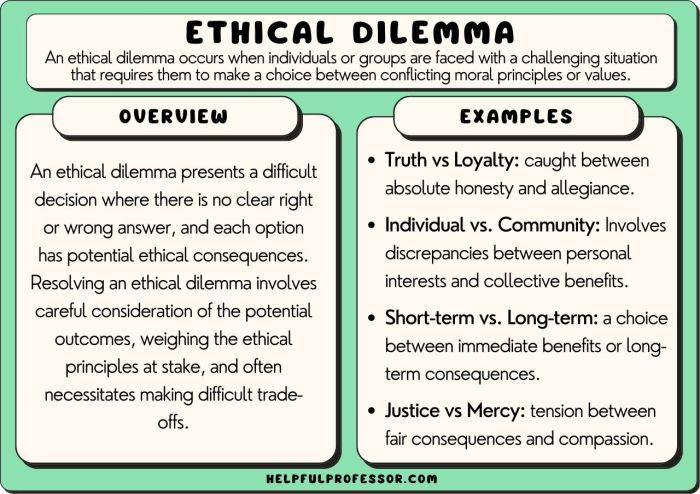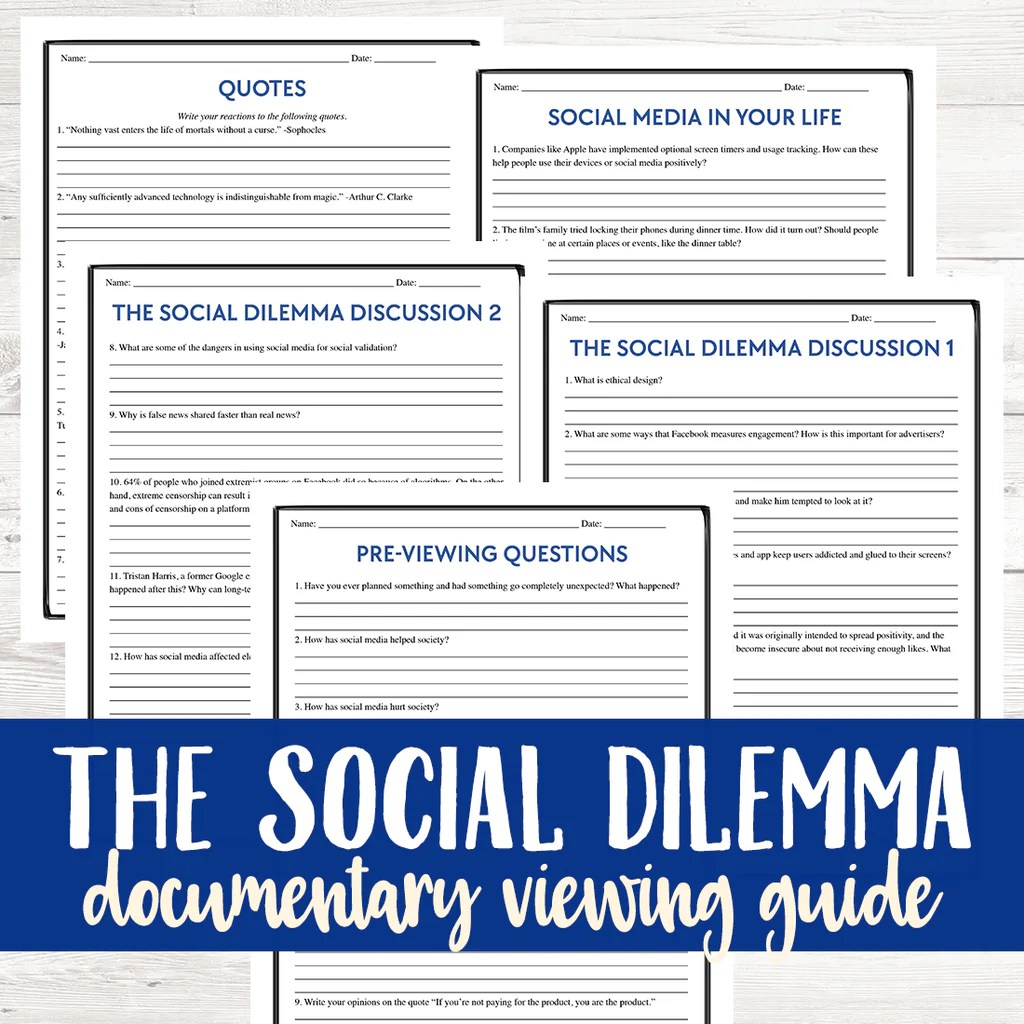The Social Dilemma Worksheet Answer Key PDF emerges as an invaluable resource, empowering individuals to navigate the complexities of social media. This comprehensive guide unravels the intricate tapestry of social media’s impact, arming readers with the knowledge and tools to navigate its challenges and harness its potential.
Through a meticulously crafted exploration, this worksheet unveils the inner workings of social media algorithms, exposing the mechanisms that shape our online experiences. It delves into the ethical considerations surrounding social media usage, fostering critical thinking and promoting responsible online behavior.
Social Dilemma Worksheet Overview: The Social Dilemma Worksheet Answer Key Pdf
The Social Dilemma worksheet aims to provide a comprehensive understanding of the multifaceted impact of social media on individuals and society. It covers key concepts related to the potential benefits and drawbacks of social media use, ethical considerations, algorithms and filter bubbles, propaganda and manipulation techniques, and the importance of critical thinking and digital literacy in navigating the digital landscape.
Analyzing Social Media’s Impact

Potential Benefits of Social Media Use
- Enhanced communication and connectivity
- Access to information and news
- Social support and community building
- Increased awareness and activism
- Educational opportunities
Potential Drawbacks of Social Media Use
- Addiction and excessive use
- Cyberbullying and online harassment
- Spread of misinformation and disinformation
- Privacy concerns and data breaches
- Negative impact on mental health (e.g., anxiety, depression)
Ethical Considerations Related to Social Media Usage
- Responsibility for content shared
- Protection of user privacy
- Transparency and accountability of social media platforms
- Impact on democracy and public discourse
- Ethical use of data and algorithms
Understanding Algorithms and Filter Bubbles

How Social Media Algorithms Work
Social media algorithms are complex mathematical formulas that determine what content users see in their feeds. They consider factors such as user interactions, interests, and demographics to personalize the experience.
The Concept of Filter Bubbles
Filter bubbles occur when algorithms limit users’ exposure to content that challenges their existing beliefs or perspectives, leading to a narrow and potentially distorted view of reality.
Examples of How Algorithms and Filter Bubbles Can Shape Perceptions
- Echo chambers: Reinforcement of existing beliefs through exposure to similar content
- Polarization: Widening of gaps between opposing viewpoints due to limited exposure to diverse perspectives
- Misinformation spread: Algorithms can amplify the reach of false or misleading information, especially if it aligns with users’ existing beliefs
Identifying Propaganda and Manipulation Techniques

Definition of Propaganda
Propaganda refers to biased or misleading information spread to promote a particular agenda or perspective.
Common Propaganda Techniques Used in Social Media
- Bandwagon: Appealing to the desire to conform
- Testimonial: Using endorsements or personal stories to gain credibility
- Fearmongering: Creating a sense of urgency or threat
- Simplification: Oversimplifying complex issues to make them more digestible
- Emotional appeals: Triggering strong emotions to influence decision-making
The Role of Misinformation and Disinformation in Shaping Public Opinion
- Misinformation: False or inaccurate information spread unintentionally
- Disinformation: False or inaccurate information spread intentionally to deceive
- Impact on public opinion: Both misinformation and disinformation can influence public opinion by shaping perceptions and beliefs
How to Recognize and Resist Manipulation Attempts
- Identify common propaganda techniques
- Evaluate the source and credibility of information
- Be aware of your own biases and preconceptions
- Seek diverse perspectives and challenge your own beliefs
- Verify information from multiple sources
Developing Critical Thinking Skills

Importance of Critical Thinking in Navigating Social Media
Critical thinking is essential for evaluating information, making informed decisions, and resisting manipulation attempts on social media.
Strategies for Evaluating Information and Making Informed Decisions
- Identify the source and its credibility
- Examine the evidence and reasoning presented
- Consider multiple perspectives and viewpoints
- Be aware of your own biases and preconceptions
- Verify information from multiple sources
The Role of Skepticism and Independent Verification in Online Discourse
- Skepticism: Questioning information and claims, especially those that align with your existing beliefs
- Independent verification: Seeking information from multiple sources to confirm its accuracy and credibility
- Importance in online discourse: Prevents the spread of misinformation and disinformation, fosters informed decision-making
Promoting Digital Literacy and Responsibility
Concept of Digital Literacy, The social dilemma worksheet answer key pdf
Digital literacy encompasses the skills, knowledge, and understanding necessary to navigate, evaluate, and use digital technologies effectively and responsibly.
Strategies for Promoting Responsible Social Media Use
- Educate users about the potential benefits and drawbacks of social media
- Teach critical thinking and evaluation skills
- Encourage responsible content sharing and online behavior
- Promote awareness of propaganda and manipulation techniques
- Foster a culture of empathy and respect in online interactions
Exploring Ways to Foster Informed Decision-Making and Ethical Behavior Online
- Encourage users to verify information from multiple sources
- Promote ethical guidelines for content creation and sharing
- Support initiatives that promote digital literacy and online safety
- Create platforms that prioritize transparency and accountability
- Foster a sense of community and shared responsibility among users
Commonly Asked Questions
What is the purpose of the Social Dilemma Worksheet?
The Social Dilemma Worksheet aims to enhance critical thinking and foster responsible social media usage by exploring its impact on individuals and society.
How do social media algorithms influence our experiences?
Social media algorithms personalize content based on user preferences, potentially leading to filter bubbles and limited exposure to diverse perspectives.
What are some common propaganda techniques used in social media?
Social media propaganda often employs emotional appeals, logical fallacies, and selective presentation of information to shape public opinion.
Why is digital literacy important in the digital age?
Digital literacy empowers individuals to navigate the digital landscape, evaluate information critically, and make informed decisions online.